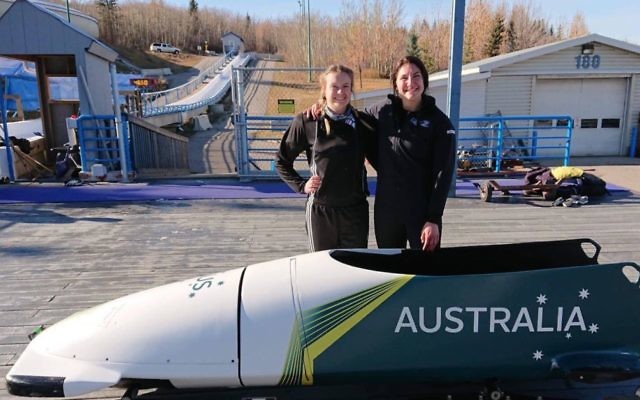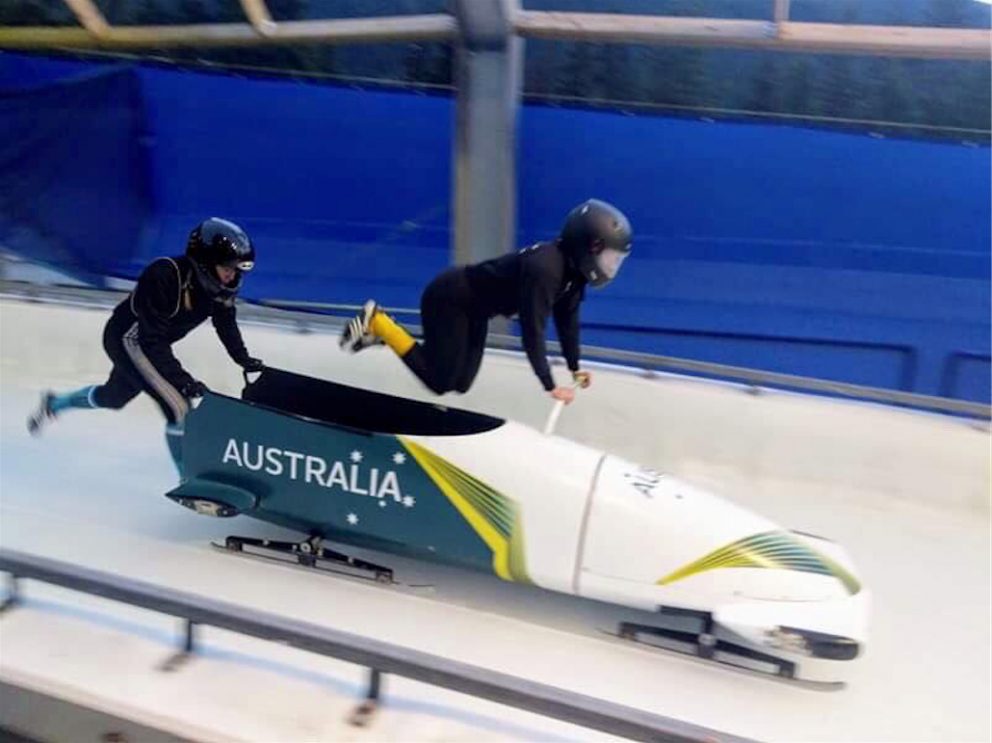Werner’s promising start in pilot’s seat
Sydney's Ashleigh Werner has successfully made her dream transition within Australia's women's bobsleigh squad, switching from brakeman to pilot in time for the North America Cup.

SWITCHING roles can be a steep challenge for any elite athlete, but in a sport where speeds of more than 140km/h are regularly reached – on ice – the stakes and added responsibilities rise significantly.
But after just one eventful bobsleigh offseason packed with personal highs and lows, Sydney’s Ashleigh Werner has successfully made her dream transition within Australia’s women’s squad, from being the leading brakeman [sled pusher and passenger] in the nation’s one and only team, to being the pilot and leader of a second two-person team featuring new recruits Kaela Sparre and Natasha Jacobi.
And after just a few weeks of intense training with her new teammates in Canada last month at a bobsleigh developing nations camp, Werner and Sparre competed for Australia in two races in the opening round of the North America Cup on the world’s fastest course in Whistler on November 7 and 8, finishing ninth and eighth in a world-class field of 12.
Canada and the USA shared the winners’ honours, with the latter team boasting Winter Olympic silver medallist Elena Myers and topping 145km/h.
But Australia were highly competitive, and hit a top speed of 136km/h – their fastest finish time being 56.74 seconds, less than four seconds behind first place.
Werner – a former sprinter and Rugby Sevens player – told The AJN from Canada she couldn’t be happier with that result, or her teammates’ racing debut, given the drama of several crashes occurring on the course just before one of Australia’s starts.
“In the first race the three sleds in front of us crashed in a row – and as a pilot or just a slider in general, that can really mess with your head,” Werner said.
“I was so excited knowing how we performed the way we had, and that we were also the only sled that did not crash in the past three weeks, which is definitely an achievement on this course [Whistler].
“Kaela and Natasha are the best teammates I could ask for – when I’m nervous, they both tell me that I don’t need to be because they have complete faith in me [as a pilot], and they have picked up the sport so quickly.”

Werner shed light on the challenge of transitioning to pilot in such a short time, and her key role in expanding Australia’s women’s squad to two bobsleigh teams – one led by her and the other by Bree Walker.
Completing an intensive three-week piloting course at Lake Placid in the USA last March confirmed her passion and suitability for the role, but a serious mid-year injury suffered when playing rugby league for the North Sydney Bears’ women’s team threw a spanner in the works.
“I ended up getting a pretty bad concussion during a game and it took me out of my normal training [schedule] for almost two months, so coming out of that, I was really determined to come back strong, and really pushed myself to the limit,” Werner said.
“I also took some time out to really think about what I wanted from this sport [as a pilot], as putting someone in the back of a sled in a dangerous sport is a decision I didn’t want to take lightly.
“There was a lot of recruitment to do too, and a video I made [for that] was seen over 5000 times – then it was a matter of finding the right coaches, buying a sled and getting my team together – it all happened so fast.”
Werner’s team will compete next in round two of the North America Cup at Park City, USA from November 19-21 and then at Lake Placid until December 6.
“I’m really just looking to build good habits – do well, yes, but also not put too much pressure on ourselves,” Werner said.
“Building a good foundation leading into the next three years, and the Winter Olympics in Beijing in 2022 – that’s the goal.
SHANE DESIATNIK

comments